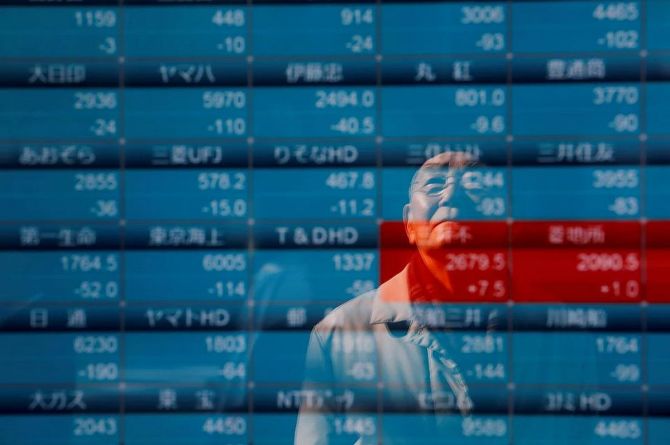The outbreak of the Omicron variant of the coronavirus and unprecedented lockdowns in China have roiled its equity market and also that of Hong Kong.
After the crisis-hit Sri Lanka, China and Hong Kong are the worst-performing stock markets in Asia on a year-to-date basis.

Most global brokerages had China as their biggest overweight in the Asia Pacific ex-Japan portfolio.
But given the turmoil in the world’s second-largest economy, most strategists have started to reduce their overweight position on China, in favour of Asean countries — such as Indonesia, Singapore, and Malaysia — which are seen benefitting from the surge in commodity prices.
This is in contrast to the past when a cut in China’s weighting usually meant increased allocation towards India.
“The overweight in China in the Asia Pacific ex-Japan relative-return portfolio will be reduced by 4 percentage points (ppt) this week, while the weightings in Australia, Indonesia, Malaysia, and Thailand will be increased by 2 ppt, 1 ppt, 0.5 ppt, and 0.5ppt, respectively.
"In this respect, the Asean region continues to benefit from a reopening trade,” wrote Christopher Wood, global head of equities at Jefferies, in his weekly note, GREED & Fear, last week.
Indonesia is emerging as a bright spot in Asia and the emerging market (EM) pack.
The MSCI Indonesia has rallied 9 per cent in dollar terms this year and FPIs have pumped over $3 billion into its equity market.
In comparison, the Indian market is down over 4 per cent in dollar terms with FPIs pulling out $17 billion (over Rs 1.3 trillon).
Jefferies currently runs a 1.3 ppt overweight on India and 4.3 ppt overweight on Indonesia vis-à-vis the MSCI AC Asia Pacific ex-Japan index.
Investors’ positive stance on the Asean markets, such as Indonesia, seems to be paying off as the earnings there have beat expectations.
In a note earlier this month, Nomura said results in most parts of Asia have been disappointing with more misses than beats.
However, Indonesia and the Philippines have reported more beats than misses and also seen earnings upgrade, thanks to the rise in commodity prices.
In contrast, earnings of Chinese firms have disappointed investors because of supply chain disruptions, regulatory headwinds, and a slowdown in economic growth.
Steven Holden of Copley Fund Research, who publishes on Smartkarma, highlights Asean nations are once again finding favour among investors.
“Among active Asia ex-Japan funds, allocations towards Asean nations have witnessed a steep decline over the past decade, but there are signs that investment levels are starting to stabilise.
"From a high of 21.98 per cent in 2012, average holding weights hit a low of 7.44 per cent in October of 2020 but have since risen to 9.47 per cent,” he said in a recent note.
Within the Asean basket, Indonesia and Singapore have the largest country allocations.
With the US Fed expected to aggressively tighten its monetary policy, fresh capital flows into EMs will be sparse.
Also, headwinds, such as Covid disruptions in China and inflationary pressure in India, may further take a sheen away from these two traditional bright spots, say experts.












 © 2025
© 2025